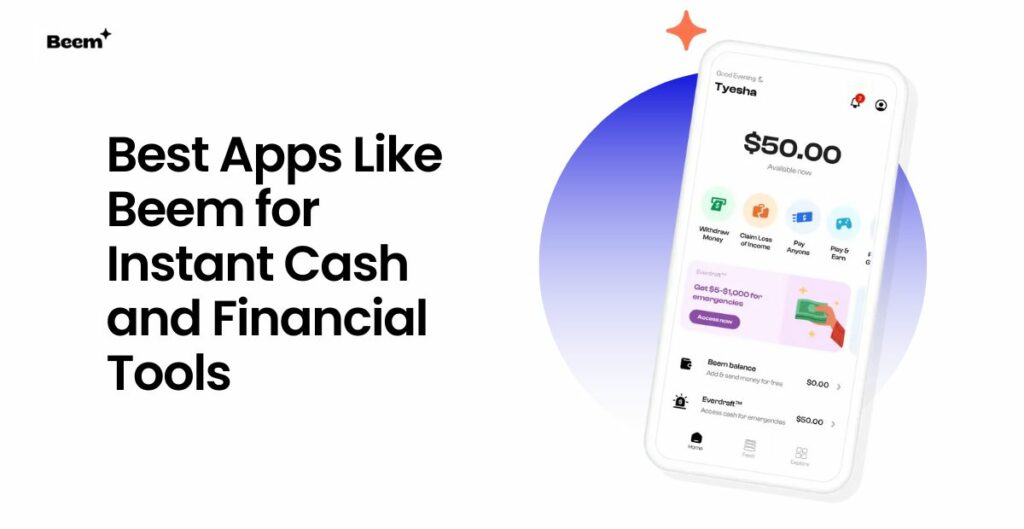Why Social Spending Pressure Is Hard to Spot
Some expenses in personal finance are marked—rent, utilities, and loan payments. However, social spending pressure is more subtle and emotional. It shows up as unplanned dinners, group gifts, or weekend getaways you feel obliged to join. Because these expenses are tied to relationships and not necessity, they often go untracked but can quickly derail budgets.
The challenge lies in how socially acceptable—and even expected—these costs are. Recognizing and managing social spending is key to staying financially grounded without compromising personal connections.
Spending FOMO Is Real — And It’s Sneaky
Seeing others spend money often gives you a fear. Their trips, gadgets, or nights out can trigger a subtle fear of missing out. Social media amplifies this feeling. It makes it seem like everyone is always doing something fun or exciting. To fit in, we often spend more than we should. This can lead to overspending without thinking twice.
We Imitate What Our Friends Value (Even Financially)
Our financial habits often mirror those of our closest friends. You’ll likely follow suit if your group values dining out or buying the latest tech. Most of the time, even if it’s not in your budget. This imitation isn’t always conscious. It’s part of how we bond or feel accepted. But it can lead to spending that doesn’t reflect your real priorities.
You Might Not Even Realize You’re Overspending Until It’s Too Late
Spending pressure can build slowly and quietly. A little extra here and there feels harmless. But when you check your account and realize you’re in trouble. Because the pressure isn’t apparent, overspending feels normal. It’s only when bills pile up or savings shrink. This is when the impact becomes clear. By then, reversing the damage is much harder.
Also Read: The Psychology of Spending: How to Outsmart Impulse Buys
What Social Situations Often Lead to Overspending?
- Group Dinners, Parties, and Weekend Getaways
The pressure to keep up with family or friends can be intense. It’s about splitting a pricey dinner, buying drinks, or joining a weekend trip. Overspending is quite common in such a situation. You might feel obligated to say yes even if your wallet says no. These social moments are fun. However, they often come with hidden costs you didn’t thoroughly budget for.
- Shared Gifting Expectations (Birthdays, Showers, Holidays)
Celebrations are grand, but gift-giving can become financially stressful. It can be group gifts, office exchanges, or extravagant birthdays. These can push you to spend more than you’re comfortable with. We rarely talk about budgets in these situations. This is why the pressure to match others’ generosity can sneak up. It makes you feel guilty or cheap if you don’t participate fully.
- Celebrations That Come With Unspoken Financial Pressure (Weddings, Graduations)
Events like weddings or graduations often carry invisible price tags. These include travel, outfits, gifts, bachelorette trips, and after-parties. There’s an unspoken rule to go “all out” for these milestones. You might spend even more, especially for close friends or family. The emotional connection makes it harder to say no. This is even when it strains your finances significantly.
- “Let’s Split It” Culture — When Equal Isn’t Always Fair
Splitting the bill sounds fair, but it isn’t always equal. If someone ordered drinks and appetizers while you just had a salad, you might still be expected to pay the same. To avoid awkwardness, many go along with it. Over time, these small compromises add up and can quietly drain your budget.
Who’s Most Vulnerable to Peer-Driven Overspending?
- Young Adults Navigating Social Identity
In your late teens and twenties, you’re figuring out who you are — often, that happens in social settings. It’s easy to link spending with belonging, thinking you must match your peers’ lifestyle to fit in. This phase of self-discovery can make you more likely to overspend just to feel accepted or seen.
- People in New Cities, Jobs, or Friend Circles
When you’re new to a city, job, or friend group — there’s a natural urge to say “yes” to everything. You want to connect and avoid being left out. But that eagerness can lead to overspending on things like happy hours, weekend plans, or group activities, even if they don’t align with your financial comfort zone.
- Anyone Struggling With Financial Insecurity But Afraid to Say No
If money is already tight, saying no can feel shameful — especially if everyone around you seems financially carefree. You might go along with expensive plans to hide your struggles or avoid standing out. But that quiet pressure often deepens the problem, creating a cycle of stress, guilt, and more spending than you can handle.
Also Read: Steps to Take If You’re Struggling With Multiple Debts
Where Does This Spending Pressure Show Up Most?
- Social Media: Highlight Reels That Drive Comparison Spending
Instagram, TikTok, and Snapchat are full of curated snapshots of vacations, shopping hauls, and aesthetic meals. It’s easy to forget that these are highlight reels — not everyday reality. But constant exposure to these moments can make you feel like you’re falling behind, subtly pressuring you to spend more just to keep up.
- Venmo, Cash App, and Zelle Transactions That Feel Like Social Proof
Payment apps like Venmo, Cash App, and Zelle can create spending FOMO. Seeing friends constantly exchanging money for dinners, concerts, or trips can feel like you’re missing out — or not doing “enough.” These tiny social signals prove that everyone else lives a fun, whole life, even if they’re splitting a pizza or repaying a coffee.
- Group Chats Planning “Expensive Fun” Without Budget Awareness
Group chats are where plans come to life — but often without financial sensitivity. Someone suggests a pricey brunch or a weekend trip, and suddenly everyone’s in. It’s hard to speak up when you’re the only one worried about cost. These chats can unintentionally pressure you to say yes, even when your budget says no.
How to Handle Social Spending Without Losing Friendships
- Practice “Budget-First” Planning With Friends
Instead of reacting to every invite, plan your month with your budget in mind — and loop your friends in early. Saying, “I’ve got room for two hangouts this month — let’s make them count!” can shift the vibe. It’s about being intentional, not stingy; most people will respect your honesty and planning mindset.
- Suggest Cheaper Alternatives That Still Feel Fun
You don’t have to miss out — rethink what “fun” looks like. Host a movie night instead of going to the theater. Try a picnic instead of brunch. Offering budget-friendly ideas helps shift group habits and shows that connection doesn’t have to come with a hefty price tag. Fun doesn’t need to be expensive to be meaningful.
- Set a Monthly Social Budget — And Stick to It
Give yourself a specific amount each month for social spending. Once it’s gone, it’s gone. This builds awareness and makes it easier to say no when needed. Treat it like any other bill — it’s part of life but has a cap. This small habit protects your finances without cutting off your social life entirely.
- Be Honest: Real Friends Won’t Shame You for Prioritizing Your Finances
It might initially feel awkward, but being upfront about your budget boundaries is powerful. “I’m watching my spending this month” is a valid reason, not something to hide. True friends won’t make you feel guilty — they might even relate. Financial honesty can deepen friendships, not damage them.
What to Do If You’ve Already Spent More Than You Should Have
Pause and Review Last Month’s Social Spending
Before panicking, take a breath and reflect on what you spent — especially on social activities. Add it up without judgment. Seeing the total clearly can be eye-opening and help you understand where things went off track. Awareness is the first step toward change, and it puts you in control instead of letting guilt drive decisions.
Rework Your Budget for the Next Few Weeks
Now that you know where your money went, adjust your upcoming budget to course-correct. Trim optional spending like takeout, subscriptions, or entertainment. A few mindful swaps can help you recover faster than you think. Even a temporary reset — like a no-spend week — can make a real difference without needing a complete lifestyle overhaul.
Use a Short-Term Cash Advance (If Needed) to Bridge Gaps Responsibly
If you’re in a tight spot and need help covering essentials, a short-term cash advance can be a tool — not a habit. Use it carefully and only after reviewing the terms. It’s not a fix-all, but when used mindfully, it can provide breathing room without turning into long-term debt.
Commit to One Small Boundary in the future (e.g., no more “I got this!” moments)
Pick one boundary to stick to: you don’t need to overhaul your social life. Maybe it’s saying no to spontaneous plans, skipping a round of drinks, or avoiding the “I’ll cover it” habit. Setting a small, doable limit can help you feel more empowered and reduce future spending guilt without missing out altogether.
Final Thoughts: Spend for Yourself — Not to Keep Up
It’s fantastic to be social — but not at the cost of constant money stress. Beem helps you track spending, stay on your budget, and spot patterns draining your wallet. With Beem’s brilliant insights, you can enjoy your social life without compromising your financial peace because peace of mind is priceless.
Using Beem’s customizable budgets and real-time alerts, you can set clear spending boundaries that support your goals. Whether saying no to another dinner or skipping that group trip, Beem makes it easier to stay firm without second-guessing yourself. You’re not being cheap — you’re being financially savvy, and Beem’s here to back you up.
Beem empowers you to make informed choices, including knowing when to say “no.” You can confidently prioritize what you need with tools like safe cash advances, income tracking, and spending insights. And real friends? They’ll respect that — because they care about you, not what you spend.















































